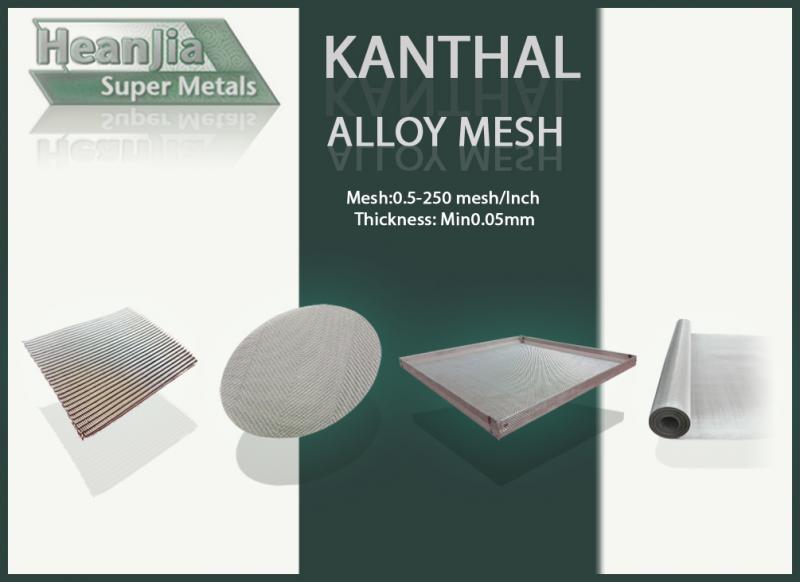

The Electric Heating Mesh exhibits superior properties of hefty resistance to corrosion that occurs at the elevated temperatures. It exhibits nominal temperature coefficient of resistance, extended working temperature level and large resistance to oxidation. It offers very high resistance to carburization, heat shock, dropping and deformation. It comprises of excellent mechanical properties and produces protected oxide layer.
The Electric Heating Mesh is an economical material. It is widely implemented in the commercial operations to produce heating apparatus such as electric furnaces.
Wire Mesh Specification:
|
Thickness: |
Aperture: |
Mesh |
|
0.1mm -10mm |
0.05mm above |
0.5mesh-250mesh/inch |
Properties of Electric Heating Mesh
|
Electrical resistivity ( µOhmcm ) |
134 |
|
Temperature coefficient ( K-1 ) |
0.0001 |
|
Curie temperature ( C ) |
600 |
|
Elongation at break ( % ) |
<25 |
|
Hardness ( kgf mm-2 ) |
230 |
|
Tensile strength ( MPa ) |
560 |
|
Density ( g cm-3 ) |
7.22 |
|
Melting point ( C ) |
1380-1490 |
|
Coefficient of thermal expansion at 20-100C ( x10-6 K-1 ) |
11.1 |
|
Maximum use temperature in air ( C ) |
1100-1300 |
|
Thermal conductivity at 23oC ( W m-1 K-1 ) |
16 |
Electric Heating Mesh shows extended functionality in the applications performed at the high temperatures and shows high hot potential. It produces minor change in resistance with respect to temperature.
Applications of Electric Heating Mesh
1. Electric furnaces and petroleum refinery plants
3. Household heating appliances
4. Electric Heater, Infrared ray device
5. Nuclear reactors
More details:View company website
Its Free
Verify Now